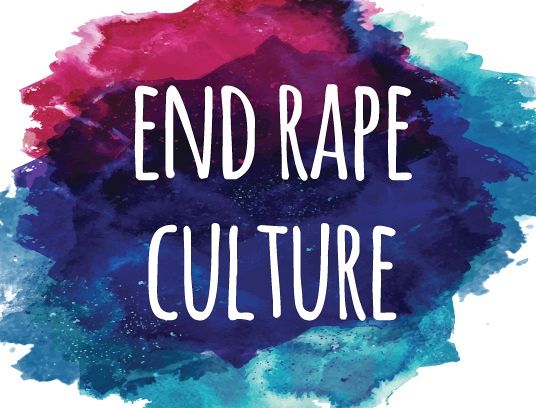Men must confront the facts: too many women are victims of sexual violence and the vast majority of their attackers are men known to them, writes Jonathon Ireland.
IF WE ARE being honest, the sexual harassment and assault allegations that have been made against Harvey Weinstein are hardly earth-shattering. There have been well publicised rumours about the pervasiveness of sexual violence and exploitation in Hollywood for decades. Where there is smoke there is fire. After all, this is an industry that celebrates and rehabilitates paedophiles like Roman Polanski.
#MeToo breaks my heart. Women from around the world, with their own lives and stories. Women who will never meet or interact in passing. Millions of humans traumatically united by one common denominator — being the victims of sexual violence.
There is no one common story. Some perpetrators were family, others partners. Some were their friends or colleagues, others complete strangers. I have come to learn, however, that there are three inalienable truths about sexual violence and these are truths that us males all must confront.
The truths are relatively simple.
TRUTH #1: SEXUAL VIOLENCE IS GENDERED
#MeToo isn’t dominated by women because it isn’t okay for males to be victims of sexual assault or harassment. It is dominated by women because sexual violence is overwhelmingly committed by men, against women. In cases of sexual assault, 93% of offenders are male and 82% of victims are female.
You don’t really see the significance of this until you flip the statistics. Only 7% of people who commit sexual assault are women and only 18% of victims are men.
On top of this, a male victim of sexual assault is more likely to have been assaulted by another male than a female. The problem is one dominantly caused by males and the victims are predominantly females.
An NYT reader's reaction to #MeToo messages from women that have flooded social media https://t.co/5HfA8S61tR pic.twitter.com/qMLgi8X954
— The New York Times (@nytimes) October 17, 2017
TRUTH #2: SEXUAL VIOLENCE IS WIDESPREAD
This is probably the most confronting truth about sexual violence. 17% – or one in six – women report having been the victim of sexual assault since the age of 15. The prevalence of sexual violence should not be surprising to any of us. So many brave women have posted on #MeToo over the past couple of days, but it can be helpful to put a statistical figure to the concept.
Yet we tend to create cognitive dissonance between the prevalence of sexual violence and our everyday lives. Like it isn’t our friends and loved ones who have been victims, but rather someone else’s friends, somewhere else. The "one in six" statistic is almost sanitised and sexual violence repackaged into a less-confronting concept in the abstract — dealt with in theory and ignored in the everyday.
These women, however, exist all around us. These survivors are your mother, your sister, your friend, your colleague, that girl in the bar who just smiled at you, that girl in the bar who just told you to fuck off because you interrupted her conversation to introduce yourself. The "one in six" are part of the fabric of our everyday lives, yet we trivialise their ordeals by keeping it out of sight and out of mind.
TRUTH #3: YOUR FRIENDS MIGHT BE RAPISTS
The uncomfortable implication of "one in six" is that if the women all around us have been victims of sexual assault, then it is reasonable to deduce that some of the men around us are among the perpetrators of this violence. This isn’t some self-abasing, Old-Testamentesque flagellation inspired by feminism’s alleged deconstruction of the male identity. Rather, it recognises that for there to be victims, there must be offenders.
And these offenders are mostly men and they don’t exist in the abstract.
You see, the old Hollywood stereotype of the creep in the bushes at night is a gross mis-portrayal of sexual violence. The truth is, sexual violence is overwhelming intimate. Three out of four sexual assaults are perpetrated by people known to the victim beforehand: 45% by a friend or acquaintance and 25% by a current or former partner. If one of your friends has posted #metoo, then there is a decent chance that you know the person who did it.
#MeToo This is so accurate it's scary to see it summed up so succinctly pic.twitter.com/7YrR8xJdXi
— j em (@kladoink) October 17, 2017
The real uncomfortable truth, however, is that it might be you.
What if the prolificacy of sexual violence against women was a consequence of males not being conscious of whether or not consent is being freely given? She may not have said no, but did she say yes? Was she in a position to say no? Was consent coerced? Plenty of my female friends have recounted stories about how they initially said no but ultimately said yes out of fear.
As my close friend chillingly put it:
“Sometimes it is easier to just say 'Yes' and not get hurt.”
I guarantee the man responsible for that comment has no idea that she had sex against her will. He just valued his own sexual gratification over her bodily integrity.
The lesson from #metoo is that it is time for some reflection and introspection on how each of us as individuals approach sex and consent. The three truths in this article paint a fairly obvious picture: too many women are victims of sexual violence and the overwhelming majority of their attackers are men who are known to them.
If your friends are saying "Me too", then you need to ask yourself "Me too?".
You can read more from Jonathon Ireland on his blog, The Young Contrarians, or follow him on Twitter @ireland_jh.
Monthly Donation
Single Donation
In light of #MeToo, a GREAT rule of thumb for anyone wondering if they are getting ready to say something terrible.#StopRapeCulture pic.twitter.com/dZzljMux0w
— USMC (@johnpmcneil02) October 16, 2017
Support independent journalism. Subscribe to IA for just $5.











